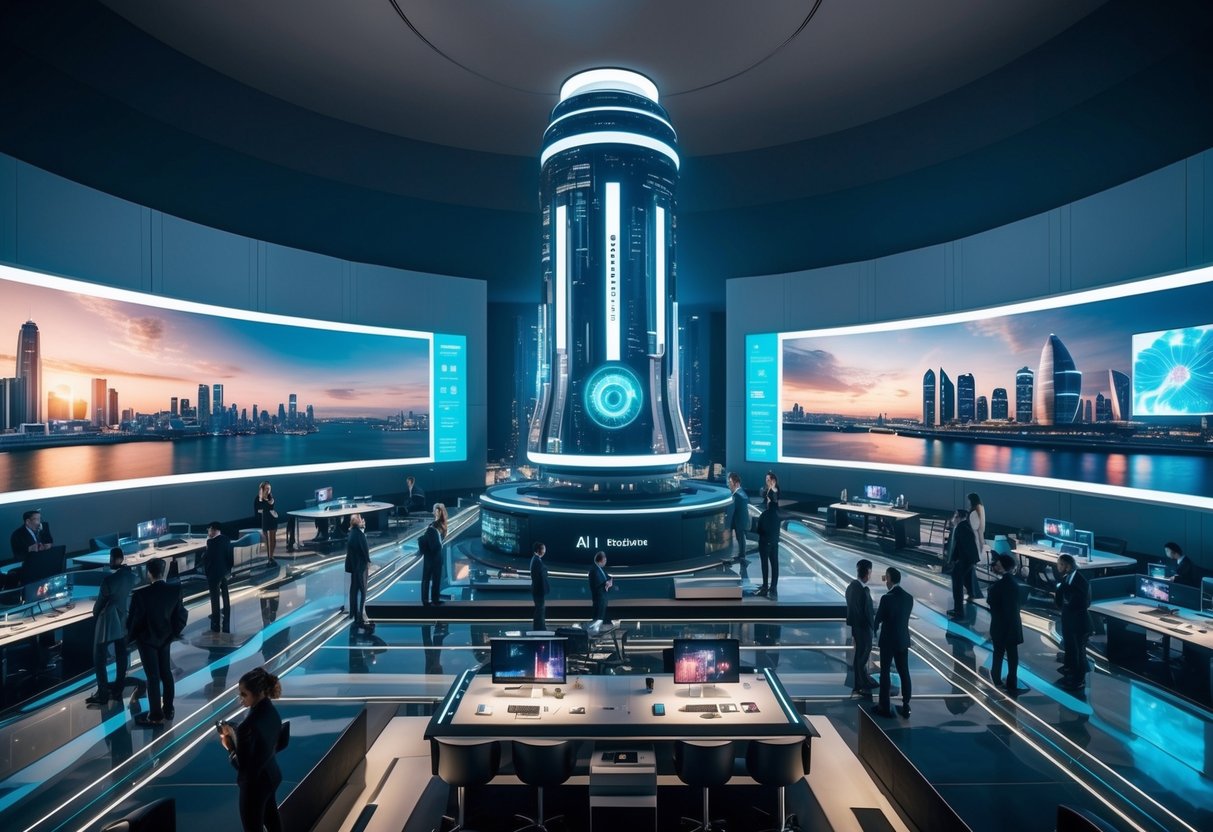
Artificial Intelligence has become a powerful force in reshaping creativity across the arts. It stands at the intersection of technology and human emotion, blending logic with imagination to produce innovative works. AI is facilitating a new era where artists can push the boundaries of their craft and explore unprecedented creative possibilities.
In digital art, AI assists in generating intricate designs and offers tools that can mimic traditional painting techniques. Musicians are using AI to compose music, exploring new melodies and harmonies that were once thought impossible. In literature, AI helps writers by suggesting narrative ideas, enhancing dialogue, and improving language coherence.
As AI continues to evolve, its impact on creativity is both profound and multifaceted. This collaboration between humans and machines challenges conventional notions of artistry. Readers are invited to explore how AI might change their perception of art in the digital age.
The Emergence of AI in Creative Industries
Artificial Intelligence is making significant waves in creative fields, reshaping artistic processes, musical compositions, and literary storytelling. This transformation highlights key innovations in art, music, and literature, showcasing the potential and versatility of AI technologies.
Transforming Art and Design
AI is revolutionizing art and design by offering artists new tools to create and experiment. Algorithms can analyze massive datasets to generate visual content, assisting in developing new aesthetics or recreating styles of famous artists.
In design, AI aids in generating logos, graphics, and layouts based on specific parameters, significantly reducing the time from concept to realization. This automation allows designers to focus more on creative decision-making, while maintaining control over the final output. AI-driven platforms and software are now integral parts of the design toolkit, facilitating innovative collaborations between human creativity and machine learning capabilities.
Revolutionizing Music Composition
The music industry is utilizing AI to push the boundaries of traditional composition and sound design. AI systems analyze patterns in existing music, offering composers insights and suggestions for new harmonies and melodies. These technologies are not only capable of creating background scores for films and video games but also assist artists in developing personalized soundscapes.
AI’s role extends to producing music tracks autonomously or assisting musicians by generating novel ideas that might not emerge from conventional methods. AI-powered tools have become vital for mixing, mastering, and even analyzing listener preferences, ultimately influencing how music is created and consumed.
Innovative Storytelling in Literature
AI technologies are enhancing literary creativity, opening new avenues for storytelling. By processing vast amounts of text, AI can help authors in drafting plots, developing characters, or even creating entire stories. Machine learning algorithms can provide suggestions for narrative arcs and character development, acting as a collaborative partner for writers.
In publishing, AI streamlines editing, translating, and adapting content for different audiences, making literature more accessible. While machines cannot replicate the depth of human experience, their role in augmenting the creative process is undeniable. As AI continues to evolve, its ability to transform the literary landscape presents both opportunities and challenges for authors and publishers alike.
AI Tools and Creative Process
AI tools are reshaping the creative process by fostering innovation and enhancing artistic collaborations. These technologies influence how creative professionals generate ideas, and they redefine techniques across various artistic fields.
Generative AI and Ideation
Generative AI plays a pivotal role in the ideation phase, helping artists and creators generate novel concepts. By processing large datasets, these systems can produce unique compositions, artworks, or music pieces that might not emerge from a human mind alone. Creators are using AI to explore a broader spectrum of ideas, thus sparking new directions in their work.
The technology provides a platform where creators can experiment freely with less concern about technical limitations. Moreover, the interaction between human creativity and AI-generated suggestions enriches the final output, pushing the boundaries of traditional artistic methods. This collaboration between human imagination and AI-generated content leads to an enriched creative process.